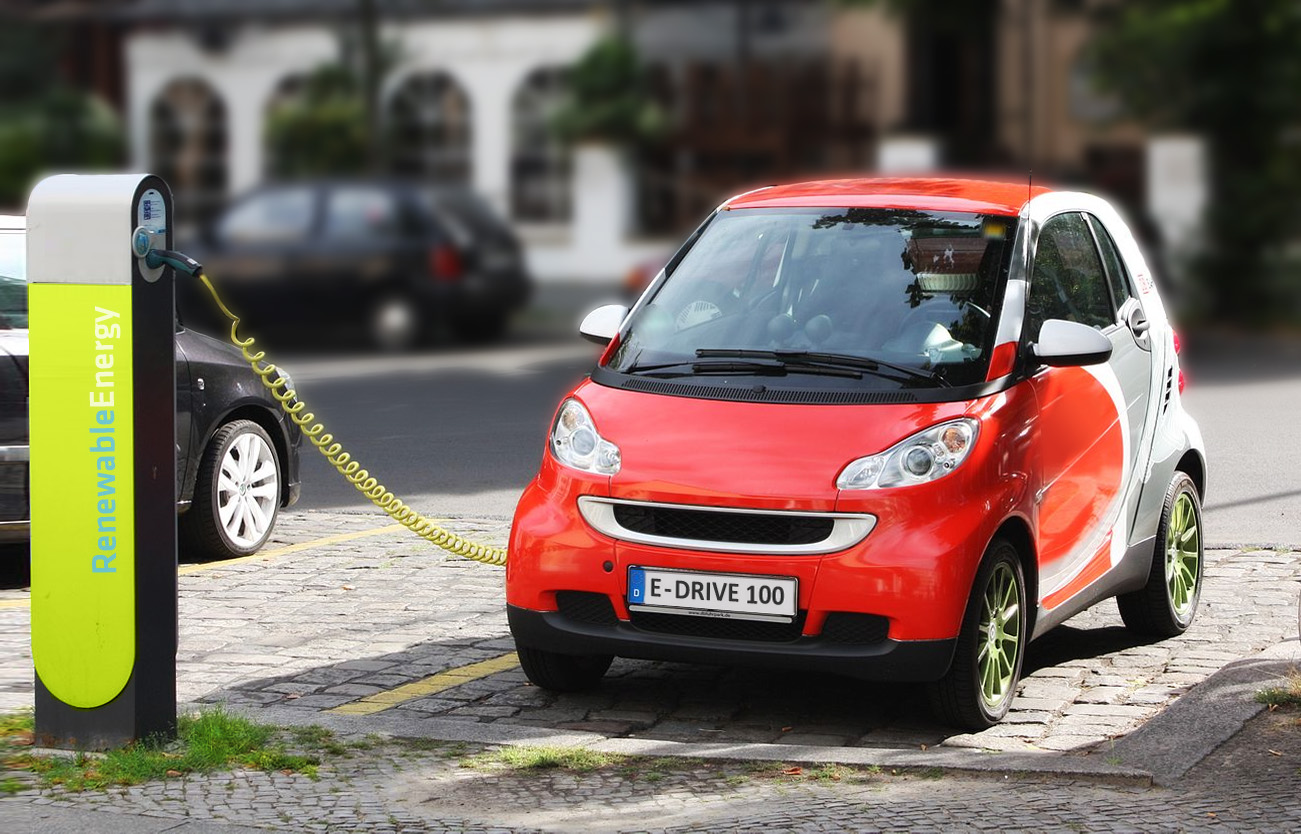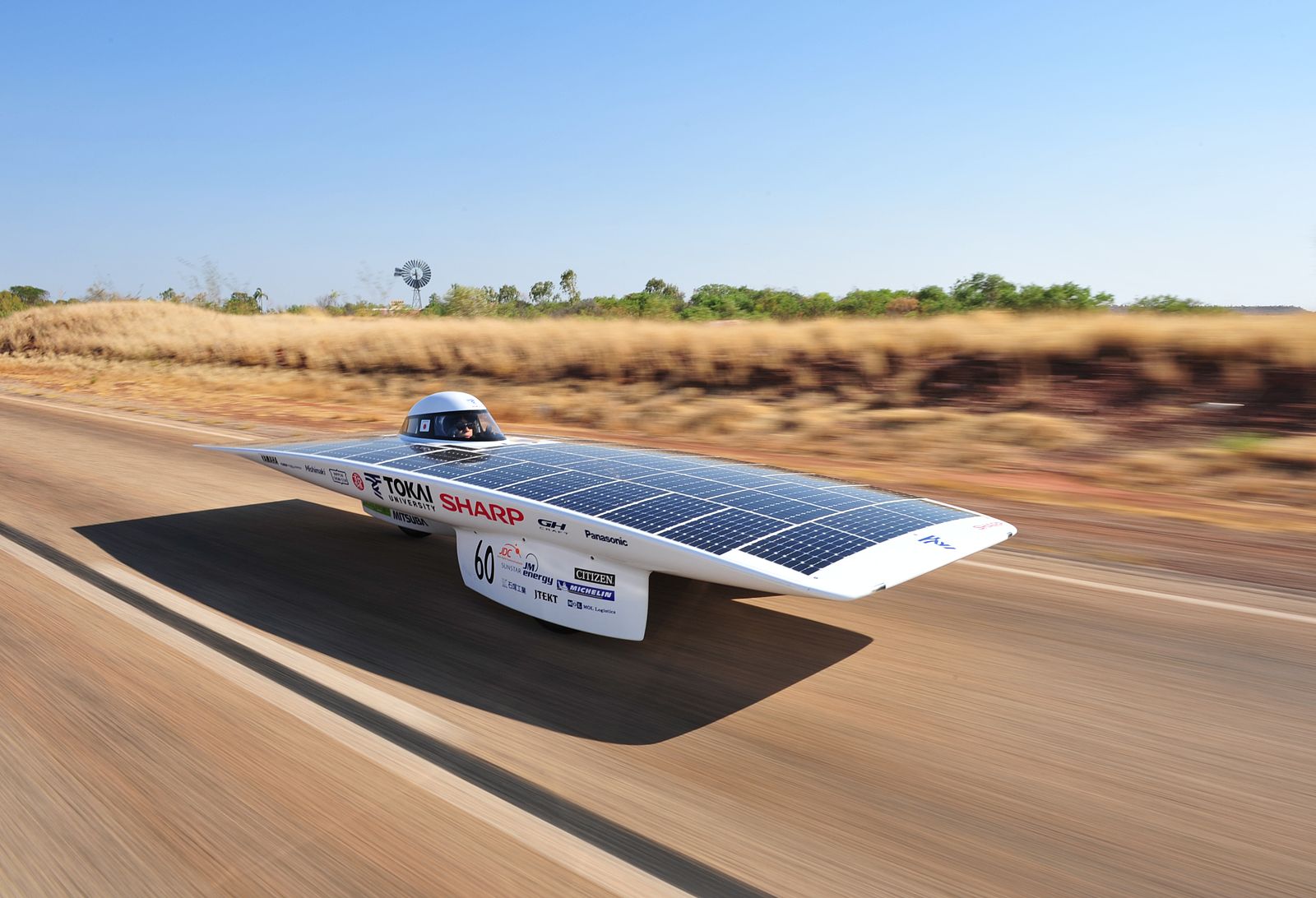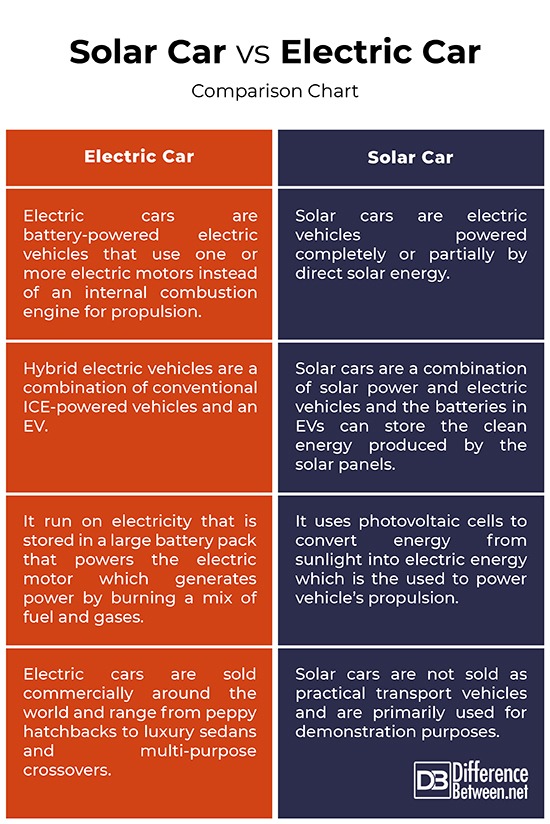Difference Between Solar Car and Electric Car
Global energy policies are becoming more and more entangled with three key issues, that is, the reduction of polluting emissions, the use of renewable resources, and the increase in energy efficiency. In the following context, the development of the electric vehicles or solar-powered electric vehicles is considered one of the most important lines of action. Indeed, the use of solar energy for charging electric vehicles provides some key opportunities related to global usage of these vehicles and their advantages in terms of energy conversion efficiency, or their ability to reduce emissions of air pollutants. Thereby, electric or plug-in hybrid vehicles and solar-powered electric vehicles are interpreted as a potential gamechanger towards more sustainable mobility and energy models.

What are Electric Cars?
An EV, short for electric vehicle, is a vehicle that uses one or more electric motors instead of an internal combustion engine for propulsion. Electric vehicles are modern road vehicles based on the modern electric propulsion which consists of an electric motor, power converter, and energy source. It is an intelligent system that integrates art and engineering with modern transportation networks. The EV system consists of mechanical subsystems, electrical and electronic subsystems, and information subsystems. Gasoline and diesel fuel-powered vehicles are the major contributors to CO2 emissions and these emissions cause air pollution and ultimately affect human and animal health. Electric vehicles are more energy efficient than the combustion process in a car because they do not release any tail pipe air pollutants and typically generate less noise pollution compared to internal combustion engine counterparts. Electricity can be generated through renewable sources such as hydroelectric, wind, solar and biomass.

What are Solar Cars?
Solar cars are electric vehicles powered completely or partially by direct solar energy. Solar vehicles are a happy union of solar power and electric vehicles and the two technologies magnify the effects of each other because the batteries in EVs can store the clean energy produced by the solar panels. Solar cars use an array of photovoltaic cells to convert sunlight into usable electric energy. Solar cell technology exhibits significant advantages over traditional fuel-based energy sources, such as free energy source, zero emission, no noise and versatility. One alternative is to construct solar powered charging stations in parking lots to produce electric power that goes into the electric power grid, and EVs can be powered by solar and wind energy. The solar power industry is one of the fastest growing industries in America. However, the future of using solar energy to power transport vehicles may still be a little hazy because of the practical difficulties involve in converting ordinary cars into solar cars.
Difference between Solar Car and Electric Car
Power
– Electric vehicles, or commonly goes by EVs, are battery-powered electric vehicles that use one or more electric motors instead of an internal combustion engine for propulsion. The batteries hold charge exactly the way mobile phones do and which powers the electric motor which turns the wheels. Solar powered vehicles, as the name suggest, are electric vehicles powered completely or partially by direct solar energy. Solar cars use an array of photovoltaic cells to convert sunlight into usable electric energy.
Working
– Electric vehicles run on electricity that is stored in a large battery pack that powers the electric motor which then generates power by burning a mix of fuel and gases. EVs use an electric motor instead of an internal combustion engine which converts the power from the DC battery to AC to turn the wheels. Solar vehicles, on the other hand, use photovoltaic cells to convert sunlight into electric energy which is then used to power all or part of the vehicle’s propulsion as well as other auxiliary functions.
Efficiency
– Both electric vehicles and solar powered vehicles both are great energy efficient alternatives compared to the internal combustion engine cars because they do not emit CO2 which is a leading cause of global warming. Electric vehicles are more energy efficient than the combustion process in a car because they do not release any tail pipe air pollutants and typically generate less noise pollution. So are solar powered electric vehicles, but solar cars are not sold as practical transport vehicles because of the difficulties involve in converting ordinary cars into solar cars. Solar powered boats are commercially available though.
Solar Car vs. Electric Car: Comparison Chart

Summary
The solar car relies on the electrical system of the vehicle which controls the electricity that flows from photovoltaic cells to the batteries, to the wheels, and to the controls. The electric motor is purely powered by the electric energy produced by the solar cells which in turn moves the vehicle. However, solar cars are not commercially sold because it is difficult for the solar panels in cars to gather enough power to move the vehicle. Electric cars (or EVs), on the other hand, are modern road vehicles based on the modern electric propulsion which consists of an electric motor, power converter, and energy source.
- Difference Between Caucus and Primary - June 18, 2024
- Difference Between PPO and POS - May 30, 2024
- Difference Between RFID and NFC - May 28, 2024
Search DifferenceBetween.net :
Leave a Response
References :
[0]Erickson, Larry E., et al. Solar Powered Charging Infrastructure for Electric Vehicles: A Sustainable Development. Boca Raton, Florida: CRC Press, 2016. Print
[1]Erickson, Larry E., et al. Solar Powered Charging Infrastructure for Electric Vehicles: A Sustainable Development. Boca Raton, Florida: CRC Press, 2016. Print
[2]Bhattacharya, Raghu N., et al. Semiconductor Materials for Solar Photovoltaic Cells. Berlin, Germany: Springer, 2015. Print
[3]Chan, C.C., et al. Modern Electric Vehicle Technology. Oxford, England: Oxford University Press, 2001. Print
[4]Mi, Chris, et al. Hybrid Electric Vehicles: Principles and Applications with Practical Perspectives. Hoboken, New Jersey: John Wiley & Sons, 2011. Print
[5]Wood, Omar. The Ugly Truth About Solar Energy. North Carolina, United States: Lulu Press, 2015. Print
[6]Image credit: https://commons.wikimedia.org/wiki/File:Electric_Car_recharging.jpg
[7]Image credit: https://commons.wikimedia.org/wiki/File:Solar_Car_Tokai_Challenger.JPG
